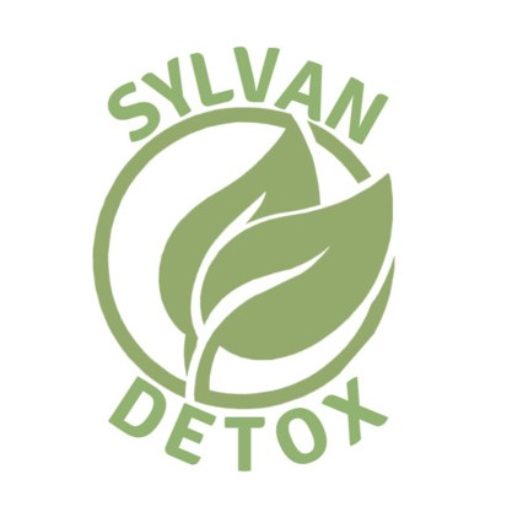Top Rated Drug Detox Program in Woodland Hills
You do not need to sacrifice luxury and comfort when it comes to getting top rated drug detox in Woodland Hills in the San Fernando Valley of Los Angeles. Sylvan Detox treatment center provides the perfect environment for clients to detox in our top-rated detox center which includes semi-private rooms, spacious common rooms, and outdoor living areas. Our number one priority besides your comfort is your safety. Our staff is dedicated to the highest quality of inpatient addiction treatment possible and providing exceptional medical drug detox services to all our clients for their substance abuse. Medical detox can be crucial to ensure safety and comfort during the withdrawal process. It can also increase your chances of completing the detox process when compared to going cold turkey on your own. It is also a great opportunity to start working on the underlying issues of addiction with individual therapy, group therapy, and medications.
What Is Detox Like?
When you decide to get help for drug addiction and substance abuse at our Woodland Hills treatment center, your first step upon admission will be a detox, which can be the scariest part of treatment. One of the first things you will likely do is talk with your primary counselor who will go through your substance abuse, mental health, and family history. A medical doctor will also complete a clinical assessment which includes but is not limited to a full Bio-Psychosocial Assessment to create your personalized treatment plan. You will live full time at our inpatient treatment facility where a dedicated team will monitor your vitals 24/7 and administer any medications necessary for drug addiction treatment and withdrawal. Detox can be very difficult and even taking care of your basic needs without the help of medications or another person can be almost impossible. Our residential treatment program will take care of your needs including chef made meals and housekeeping services.
What to Expect During Drug Detox?
Depending on the severity and length of your addiction, besides other factors like genetics, type of drug used, age, or any occurring disorders, will determine the length of your detox. In general, acute drug detox lasts anywhere from 5 days to 2 weeks with the worst part of withdrawal symptoms. Some people may experience more mild withdrawal symptoms for weeks, months or even a year after stopping using drugs. The first withdrawal symptoms can start to appear a couple of hours after last use with symptoms peaking at around 2 to 3 days after last use. Around day 5 you should start feeling much better.
During drug detox, you will begin to work on the underlying causes of drug addiction with therapies such as cognitive behavioral therapy, group therapy, 12-step programs, and trauma-informed therapy. Much of your day will be programmed to fit several therapies as well as include some free time. It is important to note that drug detox is only the first step to your recovery and drug rehab is required to fully address the root of addiction and give you the best chance of long-term sobriety. You can easily transition into our inpatient drug rehab after completing drug detox or we can facilitate transition into our outpatient rehab or intensive outpatient programs in our other network of facilities.
Symptoms of Detox by Drug Type
General drug addiction withdrawal symptoms can be similar, but the specifics as to what you will experience will depend on the type of drug used. A general overview of certain drugs and what to expect is as follows:
Benzos
Withdrawals from benzodiazepines can be lethal and require a medically supervised detox. Symptoms appear within 1 to 4 days after last use, peaking in severity in the first 2 weeks. In some cases, certain symptoms can persist for months or years without treatment requiring dual diagnosis treatment. Some symptoms include:
- Anxiety
- Trouble sleeping
- Agitation
- Nausea and/or vomiting
- Sweating
- Hallucinations
- Increased heart rate
- Seizures
Opioids (Heroin)
Short-acting opioids like heroin and certain prescription painkillers begin withdrawal symptoms 8 to 24 hours after last use and last about 4 to 10 days. Longer-acting opioids such as methadone may take 2 to 4 days for the withdrawal to emerge and will fade within 10 days. A medically supervised detox is recommended for opioid withdrawals. Opioids work by attaching and activating opioid receptors in the brain and releasing dopamine. The brain becomes dependent on the opioid to release dopamine and will no longer do it on its own, once the opioid is removed there is not much dopamine being released, and creates a series of symptoms including:
- Trouble sleeping
- Frequent yawning
- Anxiety and nervousness
- Diarrhea
- Nausea
- Flu-like symptoms
- Runny nose
- Muscle cramps and aches
- Hot and cold flashes
- Excessive sweating
- Goosebumps
Stimulants (Cocaine, Meth, etc)
The withdrawal process from stimulants can be intense. The brain becomes reliant on drug use to regulate cognitive function and focus after prolonged use. Withdrawals can be both physical and psychological. Generally, symptoms appear within a few hours to several days. Some psychological symptoms can last for weeks and months requiring dual diagnosis treatment. Symptoms include:
- Anxiety and jittery reactions
- Chills
- Dulled senses
- Slowed speech
- Loss of interest
- Slow heart rate
- Irritability
- Fatigue
- Depression
- Impaired memory
- Increased appetite
- Insomnia or hypersomnia
- Body aches
- Nightmares
Bath Salts
Bath salts refer to several synthetic drugs sold online on the streets, but predominantly they are made up of synthetic cathinones. They can be a cocktail of drugs like cocaine and amphetamines and are considered synthetic stimulants. Symptoms can include:
- Lethargy
- Fatigue
- Slow or foggy thinking
- Depression
- Anxiety
- Tremors
- Muscle aches
- Suicidal thoughts
- Inability to focus
Marijuana
Withdrawals from marijuana are more prevalent in people who use marijuana daily or nearly daily for at least a few months. A treatment plan including mental health treatment from a recovery center for long-term recovery may be necessary after detox. Symptoms appear within one week after they stop using and include:
- Extreme nervousness or anxiety
- Decreased appetite
- Sleep disturbances include insomnia, dream disturbed sleep, and nightmares
- Feelings of irritability, anger, and/or aggressiveness
- Onset feelings of depression
- Restlessness
- General malaise
- Abdominal pain
- Chills
- Sweating
- Headaches
- Tremors or shakiness
DXM/Cough Syrup
DXM is found in cough syrups to suppress cough and ease the pain. Not as common as other drugs, but DXM dependence does exist and has its own set of withdrawal symptoms which include:
- Restlessness
- Anxiety
- Insomnia
- Nausea and stomach pains
- Hallucinations
- Heatstroke
- Dehydration
- Slowed breathing, enough to cause a coma
Ecstasy/Molly/MDMA
Ecstasy increases neurotransmitter activity which causes a euphoric high, however, the increased activity also quickly depletes the brain’s supply of the chemical to feel like this. Prolonged use can cause physical dependence on the brain to experience these positive feelings, causing withdrawals when the person stops using. Withdrawal symptoms include:
- Cravings
- Paranoia
- Agitation
- Depression
- Confusion
- Anxiety
- Fatigue
- Insomnia
- Difficulty concentrating
- Loss of appetite
- Memory problems
- Changes in self-perception
Fentanyl
Fentanyl is a powerful prescription opioid that is more potent than morphine. It can easily cause an overdose and is being used to cut a wide range of drugs. It acts the same way as other opioids by attaching and activating opioid receptors in the brain. Opioid withdrawal syndrome begins within 12 to 30 hours after the last dose of fentanyl. The patch is longer lasting and may take about a day to begin withdrawals after removing it. Some of the symptoms of fentanyl withdrawal include:
- Restlessness
- Tearing up
- Chills
- Backache
- Stomach cramps, nausea, and/or vomiting
- Yawning
- Sweating
- Restlessness
- Joint and/or muscle aches and pain
- Muscle weakness
- Diarrhea
- Hypertension
- Elevated heart rate and respiratory rate
- Anxiety
- insomnia
Hallucinogens
Not all hallucinogens produce withdrawals, but drugs like PCP and Ketamine do, which can cause withdrawal symptoms. Medically supervised detox may be necessary when trying to stop the use of hallucinogens when severe withdrawals may be present. These symptoms include:
- Stiff muscles
- Convulsions
- Depressed breathing
- Seizures
- Flashbacks
- Sweating
- Headaches
- Cravings
- Extreme changes in body temperature
- Rapid heart rate
Oxycodone
As a potent prescription opioid and over time users develop a tolerance to the drug, needing higher doses to achieve the same effects. Withdrawals after oxycodone dependence can result in extremely uncomfortable and painful symptoms and may require residential inpatient detox. Withdrawals will usually arise within 8 to 12 hours from the last dose. Chronic, heavy oxycodone users will generally develop the worse, flu-like symptoms, including:
- Fatigue
- Depression
- Nausea and vomiting
- Coughing
- Diarrhea
- Runny nose
- Sweating
- Anxiety
- Teary eyes
- Increased heart rate
- Body aches and pains
- Irritability
- Poor concentration
- Mood swings
- Inability to feel pleasure
Prescription Drugs
Many people assume that because their doctor has prescribed medication it is safe to use. However, many prescription drugs have a long list of side effects including dependency. Medications that can cause dependency include benzodiazepines, sleeping medications, gabapentinoids, stimulant prescription drugs, and opioid painkillers. Some withdrawals from prescriptions can be life threatening and require a medically supervised detox. Symptoms of withdrawal will depend on how much was being used and what kind of medication, but some common symptoms include:
- Anxiety and depression
- Flu-like symptoms
- Headache
- Mood swings
- Fatigue
- Tremors
- Vomiting and nausea
- Suicidal thoughts
- Insomnia
Why Choose Sylvan Detox for Drug Detox
When choosing to stop drug addiction, going through withdrawals can be extremely challenging if not dangerous on your own. At Sylvan Detox, you can safely and comfortably detox from drugs in the comfort of our luxury detox center. You can rely on us to help you eliminate drugs from your body and your life completely with our residential inpatient programs. Our specialized team of professionals will monitor you around the clock and provide the proper medications necessary to ease your way through drug and alcohol detox. If you are ready to take back control of your life, please let Sylvan Detox in Woodland Hills help you through that journey. Give us a call today at (818) 308-3099 if you would like us to verify your insurance or reserve your spot!

